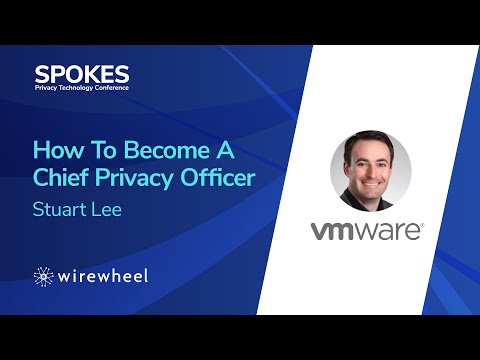Lucrative Salary for CPO Job with Exciting Responsibilities

Chief Privacy Officer (Cpo) Job Description Template
Chief Privacy Officer (CPO) Job Description A Chief Privacy Officer (CPO) is a senior executive responsible for managing and protecting the privacy of an organization’s data and information. Their primary role is to ensure that the organization complies with all relevant privacy laws and regulations. The CPO is responsible for developing and implementing privacy policies and procedures that align with the organization’s overall business objectives. They work closely with other departments, such as legal, IT, and marketing, to ensure that privacy is integrated into the organization’s operations. One of the most important tasks of a CPO is to assess the organization’s privacy risks and vulnerabilities. They conduct privacy impact assessments to identify potential privacy breaches and develop strategies to mitigate these risks. They also monitor data handling practices and ensure that employees are trained on privacy awareness and best practices. Another crucial responsibility of a CPO is to act as a liaison between the organization and regulatory authorities. They keep up-to-date with privacy laws and regulations and provide guidance to the organization on compliance matters. In the event of a data breach or privacy violation, the CPO is responsible for coordinating the response and ensuring that all necessary notifications are made. In summary, the role of a Chief Privacy Officer is of utmost importance in today’s digital age. They play a critical role in safeguarding an organization’s data and ensuring compliance with privacy laws and regulations.Chief Privacy Officer (Cpo) Responsibilities
Chief Privacy Officer (Cpo) Requirements
How Much Does A Chief Privacy Officer (Cpo) Make?
Chief Privacy Officer (CPO) Salary
| Position | Salary Range |
|---|---|
| Chief Privacy Officer (CPO) | $120,000 – $200,000 per year |
A Chief Privacy Officer (CPO) is responsible for managing and implementing an organization’s privacy policies and procedures. They ensure that the company complies with relevant privacy laws and regulations, and they develop strategies to protect sensitive information and data privacy.
The salary range for a Chief Privacy Officer can vary depending on factors such as the size and industry of the organization, the level of experience and expertise of the individual, and the location of the job. On average, a CPO can expect to earn between $120,000 and $200,000 per year.
As privacy concerns continue to grow in importance, the demand for qualified and experienced Chief Privacy Officers is also increasing. Organizations recognize the need to safeguard customer data and maintain trust, which has led to competitive salaries for professionals in this role.
Chief Privacy Officer (Cpo) Salaries by Country
Top Paying Countries for Chief Privacy Officer (CPO)
| Country | Average Salary (USD) |
|---|---|
| United States | $150,000 |
| Switzerland | $130,000 |
| Australia | $120,000 |
| United Kingdom | $110,000 |
| Germany | $100,000 |
A Chief Privacy Officer (CPO) is a high-level executive responsible for overseeing an organization’s privacy and data protection strategies. As privacy concerns continue to grow globally, the demand for CPOs has increased, leading to competitive salaries in various countries. According to recent data, the United States offers the highest average salary for CPOs at $150,000 per year. Switzerland follows closely with an average salary of $130,000, while Australia, the United Kingdom, and Germany also offer attractive compensation packages ranging from $100,000 to $120,000. These figures reflect the importance organizations place on protecting user data and complying with privacy regulations.
A video on the topic Chief Privacy Officer (Cpo)
Video Source : WireWheelInterview Questions for Chief Privacy Officer (Cpo)
1. What is the role of a Chief Privacy Officer (CPO)?
A Chief Privacy Officer (CPO) is responsible for ensuring an organization’s compliance with privacy laws and regulations, as well as developing and implementing privacy policies and procedures. They work to protect the privacy and confidentiality of personal information collected by the organization.
2. What qualifications and skills are required to become a CPO?
To become a Chief Privacy Officer, individuals typically need a strong background in privacy and data protection laws, as well as knowledge of information technology and security. They should have excellent communication and leadership skills, as well as the ability to navigate complex legal and regulatory requirements.
3. How does a CPO contribute to an organization’s overall strategy?
A CPO plays a crucial role in an organization’s overall strategy by ensuring that privacy considerations are integrated into all aspects of the business. They help build trust with customers, protect the organization from legal and reputational risks, and promote responsible data practices, which can enhance the organization’s reputation and competitive advantage.
4. What are some common challenges faced by CPOs?
Some common challenges faced by Chief Privacy Officers include keeping up with rapidly evolving privacy laws, managing privacy risks associated with new technologies, balancing privacy concerns with business objectives, and addressing privacy breaches or incidents effectively.
5. How can a CPO ensure compliance with privacy laws and regulations?
A CPO can ensure compliance with privacy laws and regulations by conducting regular privacy assessments and audits, developing and implementing privacy policies and procedures, providing training and awareness programs for employees, and establishing a system for monitoring and enforcing privacy compliance.
6. What steps should a CPO take in the event of a privacy breach?
In the event of a privacy breach, a CPO should immediately initiate an incident response plan, which may include notifying affected individuals, investigating the breach, mitigating any harm caused, and reporting the incident to relevant authorities and stakeholders as required by law.
7. How can a CPO promote a culture of privacy within an organization?
A CPO can promote a culture of privacy within an organization by creating and fostering a privacy-aware culture through training, communication, and awareness programs. They should also engage with employees at all levels to emphasize the importance of privacy and provide guidance on privacy-related issues.
8. What role does a CPO play in ensuring data protection in third-party relationships?
A CPO plays a critical role in ensuring data protection in third-party relationships by conducting due diligence on vendors and service providers, negotiating privacy and data protection clauses in contracts, monitoring their compliance with privacy requirements, and implementing safeguards to protect personal information shared with third parties.
9. How does emerging technology, such as artificial intelligence and IoT, impact the role of a CPO?
Emerging technologies like artificial intelligence (AI) and the Internet of Things (IoT) pose new challenges for a CPO. They need to assess the privacy implications of these technologies, develop privacy-by-design principles, ensure transparency and consent mechanisms are in place, and address potential risks associated with data collection, storage, and processing.
10. What are some best practices for a CPO to stay updated with privacy regulations and industry trends?
To stay updated with privacy regulations and industry trends, a CPO should actively participate in relevant professional networks and associations, attend conferences and seminars, engage with privacy experts and consultants, regularly review and analyze privacy-related publications and research, and maintain strong relationships with legal and regulatory bodies.






